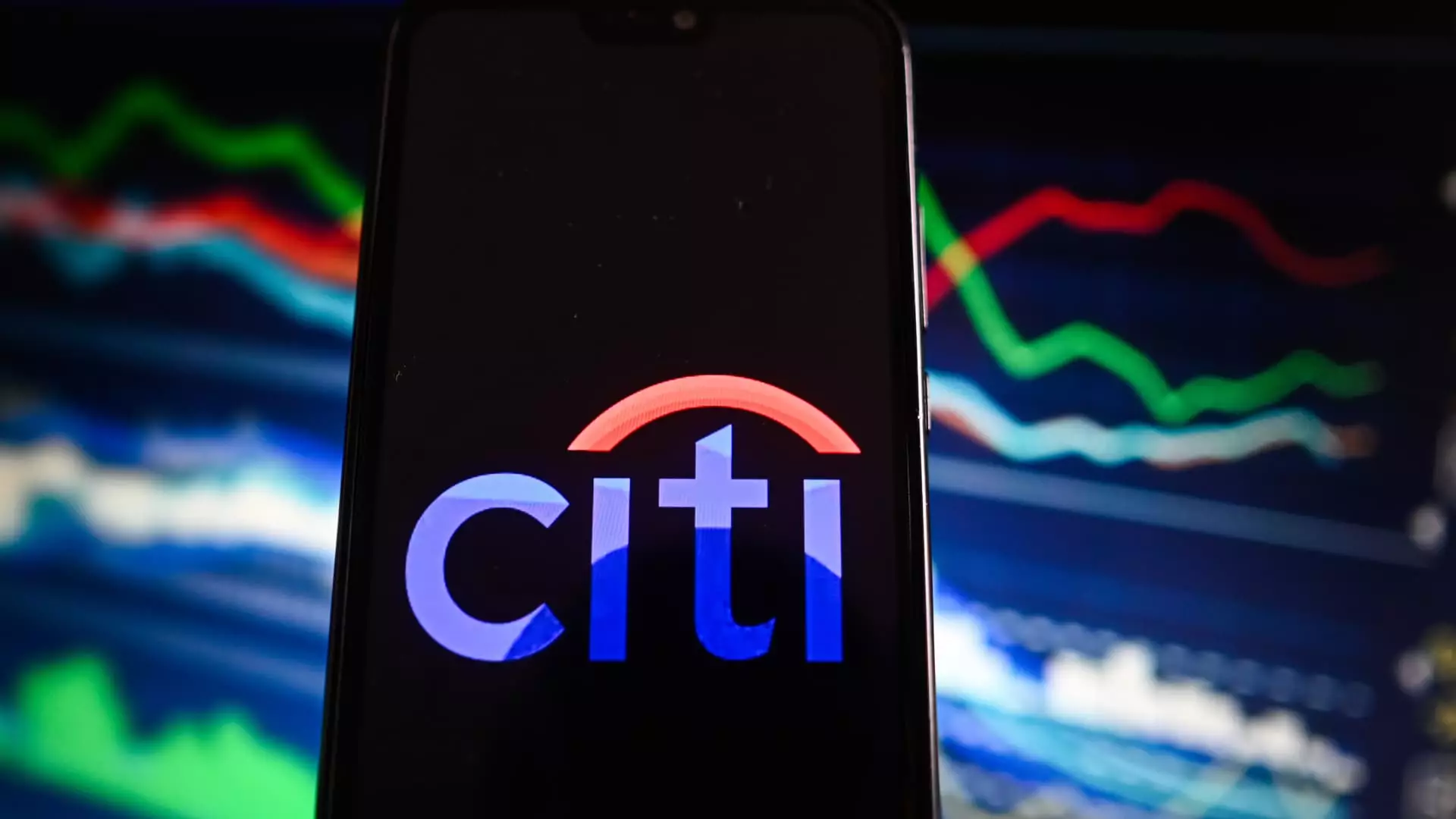In the wake of recent electoral outcomes, major banking stocks saw significant gains, highlighting a palpable sense of optimism among investors. This rally in bank shares can largely be attributed to the anticipated victory of Donald Trump in the presidential election—a conclusion that seemed to take shape in overnight trading. Notable banks, such as Citigroup, Bank of America, Wells Fargo, and Goldman Sachs, experienced impressive stock price increases, with Citigroup leading the pack by approximately 5% in late trading sessions. The rally underscores how closely the banking sector aligns itself with the prevailing political landscape, particularly regarding potential regulatory changes.
The ascent of bank stocks reflects a broader market sentiment that favors a Republican administration’s approach to financial regulation. Investors generally expect such administrations to embrace policies that prioritize deregulation—an aspect that analysts, such as TD Cowen’s Jaret Seiberg, have noted as particularly beneficial for major financial institutions. The potential reduction in oversight by regulatory bodies like the Consumer Financial Protection Bureau could free banks from many compliance burdens, enabling greater profitability and flexibility. Seiberg’s insights indicate that with less stringent regulations, banks may reorient their business strategies to capitalize on this advantageous environment.
The promise of deregulation under a Trump presidency is significant, especially concerning capital requirements and credit card-related policies. The anticipation that banks may enjoy more lenient standards creates a fertile ground for increased trading activity, leading to potentially higher profit margins. However, while optimism reigns in the banking sector, it’s critical to recognize the nuances of such policy shifts. The promise of deregulation could open new avenues for revenue, but it also introduces certain risks. For instance, Trump’s stance on tariffs and immigration may lead to inflationary pressures that could impact the broader economic landscape and, by extension, the banking sector.
Furthermore, Trump’s presidency is expected to reshape how regulations surrounding emerging technologies, such as cryptocurrencies, are constructed. With the potential for more lenient oversight on new financial products, banks may find themselves better positioned to innovate and capture new market opportunities. However, the long-term viability of such a landscape remains uncertain, especially if the administration pursues aggressive stances on international trade and immigration that could destabilize economic growth.
While the initial response from the banking sector to Trump’s projected electoral victory is one of optimism and growth, it is crucial for investors to maintain a watchful eye on the implications of deregulation. As the financial landscape shifts, understanding the balance between opportunity and risk will be key in navigating the potential changes that lie ahead. The journey from political expectations to tangible market movements is complex, and the outcomes will ultimately depend on a range of factors beyond mere electoral promises.

